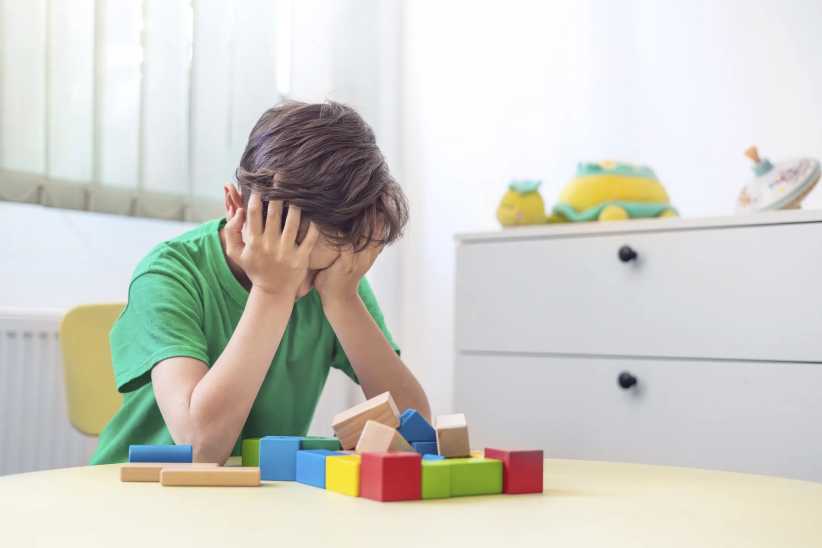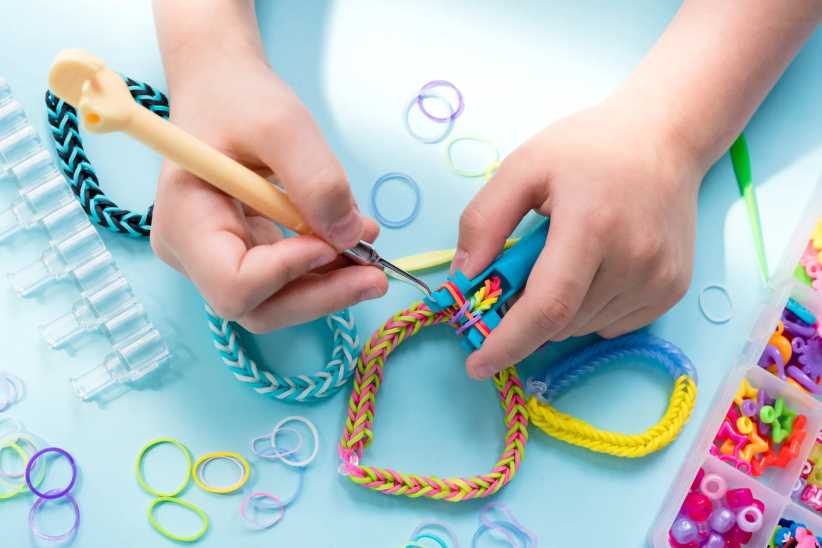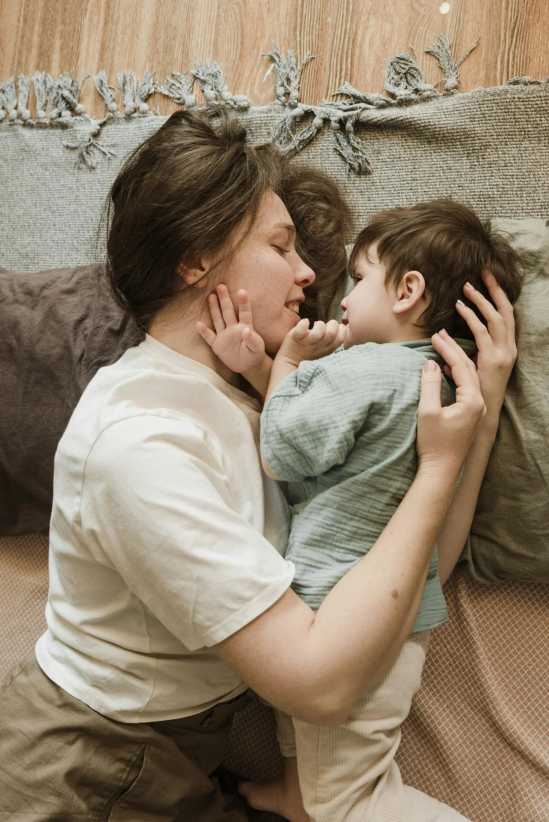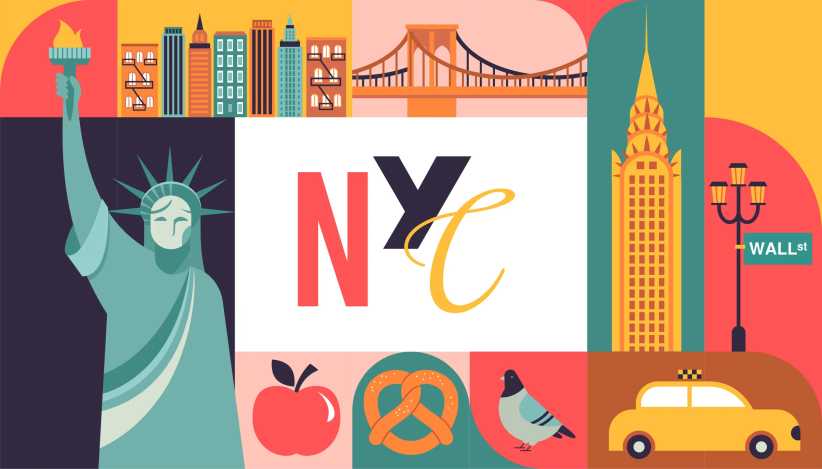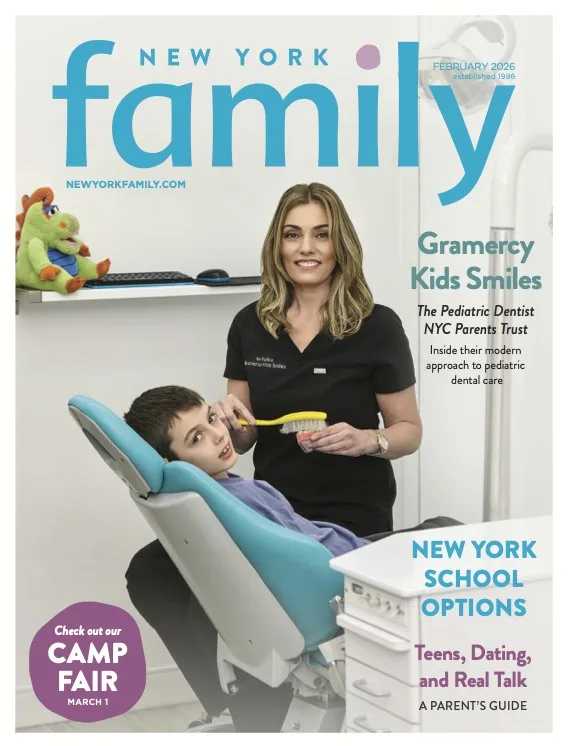There is a boy on the Upper West Side named Henry. He is five years old, a lover of “Sesame Street,” a budding puppeteer. He has an older brother, Noah, whom he adores and also occasionally likes to pester. Henry is funny, determined, and a big cuddler. He delights in his family and his friends. He’s got a mischievous glint in his eye and a contagious laugh.
Henry also has Down syndrome.

The fact of Henry’s genetic condition is not in itself remarkable. To the people who know and love Henry, his extra chromosome is not the most important thing about him. For his mother, Rachel Adams, perhaps the most remarkable thing about giving birth to Henry was how he was a complete surprise—and yet someone for whom she had been preparing for a long time. In her luminous memoir, Raising Henry: a Memoir of Motherhood, Disability, and Discovery, Adams writes about how the birth of her son changed everything, and, at the same time, brought her back to the beginnings of a journey that had been long in the making.
A professor of English literature, Adams made her academic mark studying the history of freaks and freak shows. She was drawn to freaks precisely because they defied the rules of “respectable society”: “Instead of demanding to participate in the world of the able-bodied, freaks helped us to imagine how the world could be a radically different place,” she writes. While the work of the disability rights movement argued against freak shows as exploitative and damaging to an inclusive and accommodating culture for people with disabilities, Adams was drawn to freaks for their outsider status—performers who rebelled against the idea of “the Normal” in provocative and even disturbing ways. Eventually, Adams’s work drifted away from disability studies altogether.
And then, roughly half a decade later, she became Henry’s mother. With his diagnosis, Adams found herself returning to the old arguments and navigating disability studies anew and on a deeply personal level.
“Suddenly,” she says, “I had this child, and what I wanted most for him in the world was for him to be seen as a child like everyone else—for him to be accepted and included. It became the focus of not just my parenting, but also of my intellectual life.” Her memoir is a story, in part, about how those two things came together. But it’s also much, much more.
On a personal level, Adams’s story is about how she came to embrace Henry after the initial shock of his diagnosis. She writes about her worries for her older son, Noah, and how having a younger sibling with Down syndrome might affect him. She writes about her husband, Jon, and his steadfast devotion to their family, as well as the arguments that inevitably arise when the extra demands of therapies and doctors appointments outstrip a family’s resources. The memoir is about baking as self-therapy, fostering a new love and appreciation for her in-laws, coming to terms with her own motherless upbringing, and facing the debilitating anxiety of her own mortality.
Equally, Raising Henry offers a glimpse into the daily triumphs and struggles of raising a child with a disability in New York City, and the larger community of children with Down syndrome and their families who work every day to make the city a place where their children can thrive.
“When Henry was first born, I thought I was completely alone,” Adams says. “I thought, ‘I’m in this cosmopolitan city full of the most ambitious, successful, and over-educated people in the world. Who else would be like me and have a child with Down syndrome?’ Slowly over time I realized there was quite a community of people of all different kinds living here—different classes, national backgrounds, employment histories, interests, religions.” With world class medical care, a state-sponsored Early Intervention program, an exhaustive public transportation system, and more, Adams imagines that, today, New York City is one of the best places in the world to be a person with a disability.

Where the city falls short, however, it does so in big ways. “The community of people with Down syndrome and their families is one that has tremendous needs that often go unmet,” says Adams. “There are many people who don’t have the services that they need, whose children are being badly under-served by the schools that they attend, who are facing the prejudice of doctors, teachers and bureaucrats that they deal with every day.” Schools in particular, fail to adequately serve the city’s population of children with Down syndrome. Independent schools are often prejudicial, and when they are not, they are expensive and selective. Public schools, with their budget shortfalls and large class sizes, struggle to provide the specialized attention that children with Down syndrome need.
Adams’s desires for Henry are the same as her desires for her eldest son, Noah: that he is happy, kind, thoughtful, well-loved and valued, and as independent as possible as he grows into adulthood. Adams knows that access to education is key to Henry’s success today, but she also has her eye on his securing his chances at a rewarding future. “One of the hardest things for many people with Down syndrome is that they are often very successful in high school, then when they graduate there aren’t the same work and life opportunities that are available to their typical peers.”
Adams notes that the public face of Down syndrome most often has to do with cute children, and unfortunately, once those children grow up they experience a real absence of energy and resources. Her hope is that by the time Henry is an adult he will have opportunities to keep flourishing, even after he leaves high school.
To this end, Adams serves on the Board of Directors for Gigi’s Playhouse New York, a Down syndrome awareness center with locations across the country that opened in Harlem in 2012. “Ours is a wonderful gathering place,” Adams explains. “There are all kinds of social events, classes and therapy programs, all free of charge. We bring in speakers, and I’ve just started an adult writing group. I think that all of us feel that, as much as we want our children to be included [in the larger community], we also want them to be part of a community of other people with Down syndrome—and Gigi’s promises to give them that for the long run.”
Presently, Henry likes to pretend to be Darth Vader, wielding an imaginary lightsaber and vanquishing his enemy (who happens to be his brother, Noah, aka Luke Skywalker). This fall, he just started kindergarten on the Upper West Side. His whole future is ahead of him.
At one point in her memoir, Adams recalls a moment of intense frustration for the many forms of prejudice facing Henry and other kids with Down syndrome: “I want to change the way other people think,” she yells. “I want to change the world.” Indeed. With her relentless critique of the troubling responses to disability—social, medical, genetic, educational, legal—weaved through the searing specificity of her life raising Henry, Rachel Adams is on the way to doing just that.
Sarah Torretta Klock lives in Sunset Park with her husband and three children. She is a writer, photographer, and expert child wrangler. See her work at lightfantastik.com.

